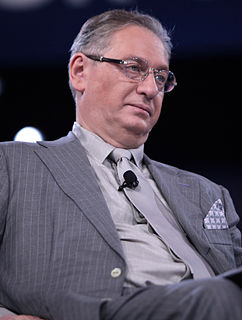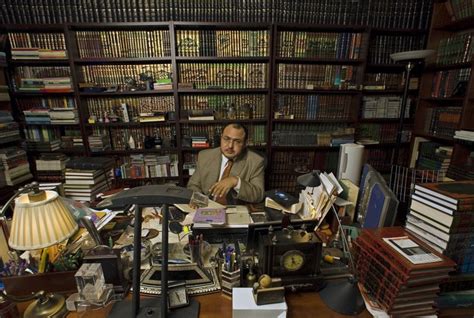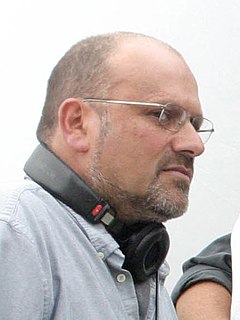A Quote by Gad Saad
As someone who escaped religious persecution in Lebanon and whose parents were kidnapped in Beirut, I fully support the protection of all individuals from institutional discrimination. That said, I am weary of the ethos of victimhood that has parasitized our culture.
Related Quotes
Religious freedom is often referred to as America's first freedom. Our country was founded by religious exiles and built on the belief that God has given all people certain inalienable rights. Government's role in society is to protect these rights and ensure that we are safe from religious persecution and discrimination.
I need to have one foot inside and one foot outside a culture to be able to write about it. For example, I couldn't write about the gay culture if I were wholly inside or outside of it. Finding that distance is always interesting. I jokingly say that when I'm in America, I write about Beirut, and when I'm in Beirut, I write about America. A lot of my friends in Beirut think I'm more American than Lebanese. Here, my friends think of me more as Lebanese.
Well-established Supreme Court precedents indicate that states - like the states of Washington and Minnesota - have no equal-protection rights of their own, nor can they vindicate equal-protection rights of their citizens. The same is true about being able to challenge alleged religious discrimination. This limitation on the states' authority to champion such claims is fundamental to our separation-of-powers architecture.
The word of God is definitely above culture, in terms of what or who should have authority in our lives. However, we must remember that we are within culture, and our calling in Christ is to play our part in the redemption and transformation of individuals and cultures. I believe the recent history of the religious subculture teaches all too clearly that unless we are moving forward in seeking the genuine transformation of culture, then we are standing still and it is transforming us.
People in the United States don't like to hear it, but puritanical Islam has been on the rise because of our unequivocal policy of absolute support for Israel, regardless of what Israel does - even if they invade Lebanon and bombard a major city like Beirut, full of civilians. Israel has atomic bombs, but we go nuts if any Arab country or Iran develops even nuclear capabilities.
It was important for me to show that Beirut and Lebanon were once the pearl of the Middle East. Beirut was once called the Paris of the Middle East and to have that feeling of a destroyed place that once was beautiful and glamorous and visually impressive was important. I think it's even sadder to get the feeling that this country, and indeed the whole Middle East, could have been a major force in the world if people would get together and forget about destruction, death and wars. But unfortunately, it's not happening yet.
Lebanon was at one time known as a nation that rose above sectarian hatred; Beirut was known as the Paris of the Middle East. All of that was blown apart by senseless religious wars, financed and exploited in part by those who sought power and wealth. If women had been in charge, would they have been more sensible? It's a theory.
At the bottom of religious persecution is the doctrine of self-defence; that is to say, the defence of the soul. If the founder of Christianity had plainly said: 'It is not necessary to believe in order to be saved; it is only necessary to do, and he who really loves his fellow-men, who is kind, honest, just and charitable, is to be forever blest' - if he had only said that, there would probably have been but little persecution.



































